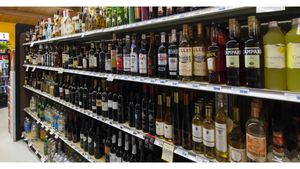PCC MARKETS PUTS STAMP ON PUSH FOR GM LABELLING
SEATTLE -- PCC Natural Markets here has sent more than 12,000 letters, signed by the food cooperative's customers, petitioning Congress to pass a law requiring labels on genetically modified foods.The two-week campaign was waged from table displays inside each of the retailer's eight units in and around the Puget Sound area of Washington state. The drive was held in April, and culminated on Earth
June 26, 2000
ROBERT VOSBURGH
SEATTLE -- PCC Natural Markets here has sent more than 12,000 letters, signed by the food cooperative's customers, petitioning Congress to pass a law requiring labels on genetically modified foods.
The two-week campaign was waged from table displays inside each of the retailer's eight units in and around the Puget Sound area of Washington state. The drive was held in April, and culminated on Earth Day, though the entire package was just verified and sent to Capitol Hill, said officials.
According to Trudy Bialic, spokeswoman for the chain, the campaign has helped foster the reputation of the operator as an information source, and also demonstrates the increasing reliance consumers have on their supermarkets as education destinations. It is hoped the overwhelming response will prompt traditional retailers to assume more of a leadership position on such matters, she said.
"It's our business to respond to consumers' concerns and needs as a retailer," she said, adding such initiatives don't have to be complicated. Simplicity is key to success and often appreciated by consumers.
"We didn't get into the arguments, pro or con, in the letter," said Bialic. "People were very grateful that we made it easy for them, without getting into why or why not they may support it, or what piece of scientific research they believe. It was simply a right-to-know issue."
PCC -- one of the largest food cooperatives in the country -- was surprised, like many mainstream retailers, by the extent GM ingredients are present in food products, she noted. Upon gauging the magnitude of the issue, the retailer began researching the subject last August in preparation for the inevitable questions that would come from its shoppers, most of whom are keenly attuned to the chain's philosophy of nutritional awareness and environmental responsibility.
"About two-thirds of the processed foods on the shelves contain either [genetically modified] corn or soy substrates," she said. "We have about 40,000 members and, as a purveyor of natural and organic foods, this became a very important issue to them and us."
PCC's shelves currently include GM foods, and none has been removed from sale. For now, the retailer is maintaining a policy of highlighting the consumer-choice aspects of the issue, she said. To that end, PCC shares the position expressed by others in the natural- and organic-food industry, arguing that responsibility rests with manufacturers and processors, rather than retailers or consumers.
"It would really take the heat off the merchandisers and retailers like us if we did have labels," Bialic said.
There are currently two bills before Congress that would require labeling of GM-food products -- one is in the House, supported by 51 members of Congress; a similar bill is sitting in the Senate. PCC's campaign made special note of the positions taken by congressmen representing the retailer's market area: while two support the House bill, two have yet to sign on; and, neither of the state's U.S. Senators has cast an affirmative vote, either, the retailer noted.
Using existing consumer-publicity channels, PCC alerted customers to the petition drive and even invited them to staff in-store tables, though most of the time, the stations were unmanned. Nevertheless, the lack of a live solicitor did not dampen enthusiasm, according to Bialic.
"Volunteers are pretty hard to come by in this day and age, so the display tables were designed to be passive," she said. "But, when they were manned, we collected about three times as many signatures."
Shoppers who volunteered their time were first required to attend one of two training seminars scheduled prior to the drive. There, they received an updated overview of the issue, and learned answers to commonly asked questions regarding GM foods. Each session, conducted by a locally based grass-roots organization, the Campaign to Label Genetically Engineered Foods, lasted approximately one-and-a-half hours, Bialic said. The retailer has actively supported the organization based on their mutual concerns, she added.
The tables themselves were set up around a large display poster exhorting, "You have a right to know if the foods you're eating are genetically modified." A plexiglass stand was filled with the retailer's own pamphlet on GM foods, one of the products of the August research initiative. PCC displays the literature on its Web site (www.pccnaturalmarkets.com) and has allowed other retailers to download and print it in the past, Bialic said.
The brochure highlights a number of contradictory findings documented by a variety of sources, including government agencies -- but these are only used to reinforce the right-to-know standpoint, Bialic said. The booklets also include the names and addresses of 13 state and federal officials with a capacity to influence the GM-foods debate -- including President Clinton -- and a tear-out postcard, for use with the addresses.
Next to the pamphlets were individual piles of form letters, each pre-addressed to the members of Congress representing that area of the state, as well as those in committee-leadership positions. The seven-sentence petition urges lawmakers to protect consumers' right to know; argues that if the organisms are "different enough to be patented, they're different enough to be labeled;" and notes that other countries have already enacted labeling laws. Blank space was left for the petitioner's address information and for the signature.
"A good number of people personalized their letters and added comments and concerns," she said. "Member after member thanked us for planting a flag on this issue."
Bialic added that the whole petition drive cost only about $1,200, and the pre-printed letters and addresses were relatively easy to create.
Yet, the completed letters acted as a convenience that helped spur heavier participation in the drive, since it required minimum effort on behalf of consumers. "We did all the legwork, provided the addresses on the letters and made it very simple. That's all we had to do."
Many shoppers expressly complimented the retailer on the convenience factor. According to Bialic, they said things like "I'm just so busy, but I am concerned about it," and "I always wanted to write a letter, so thank you for making it easy to register a voice."
About the Author
You May Also Like




